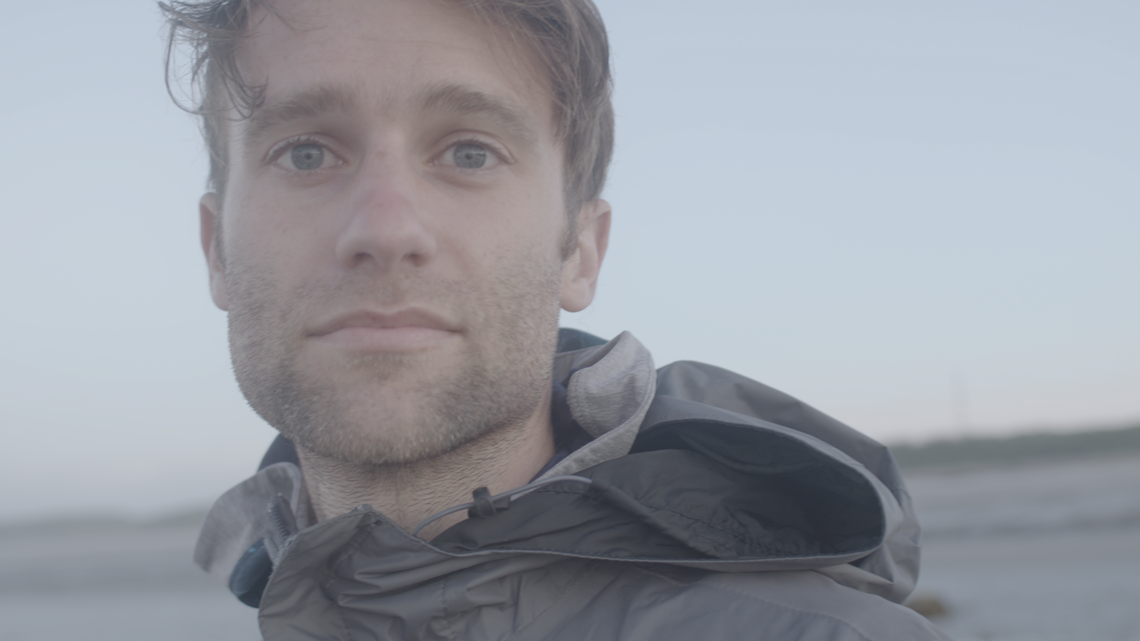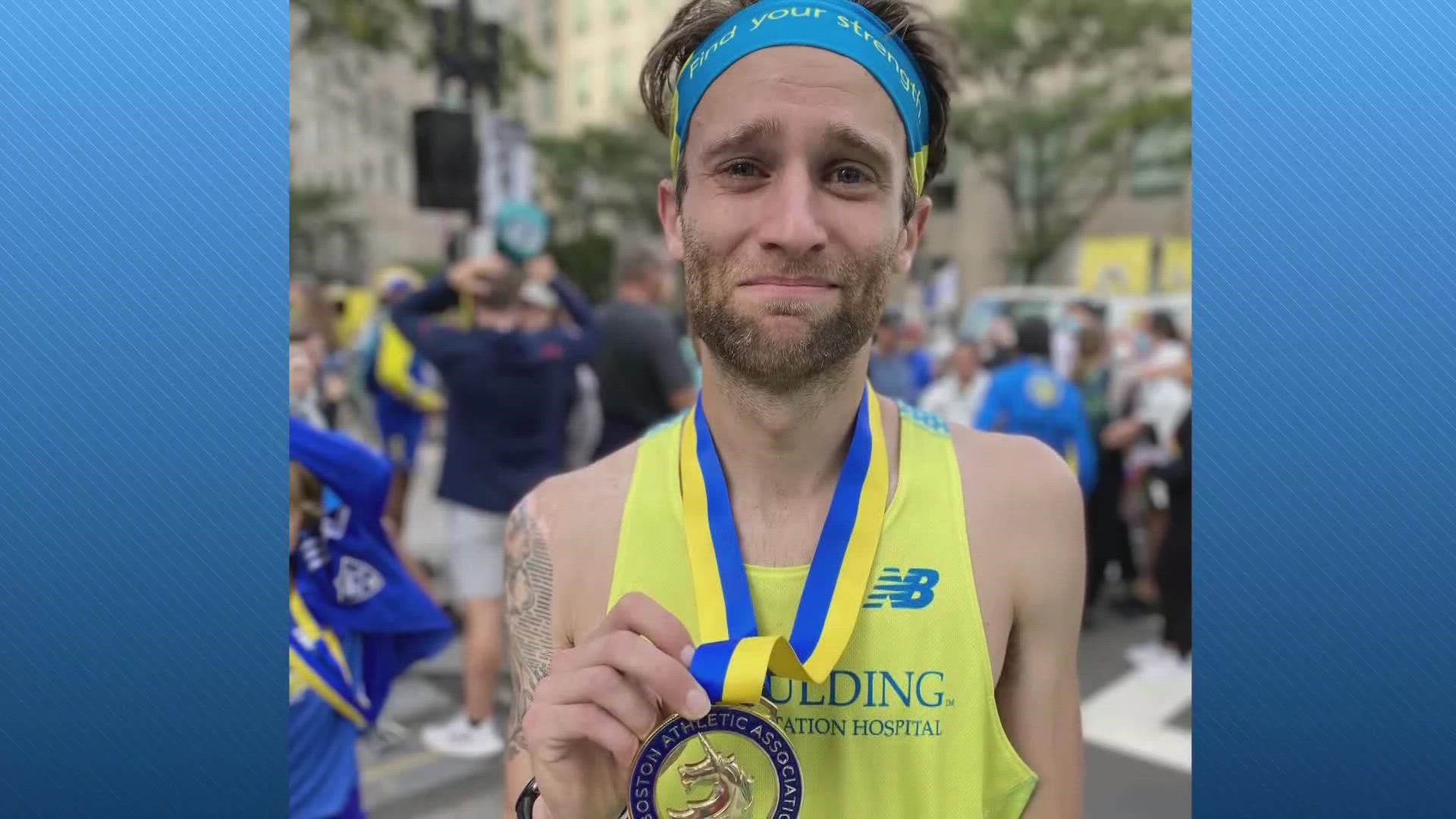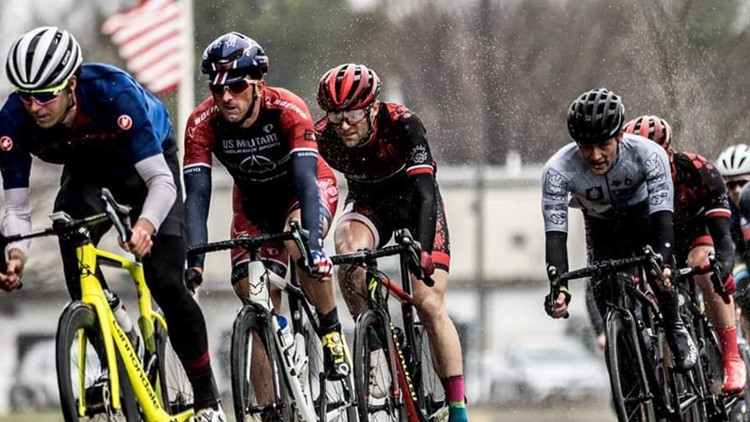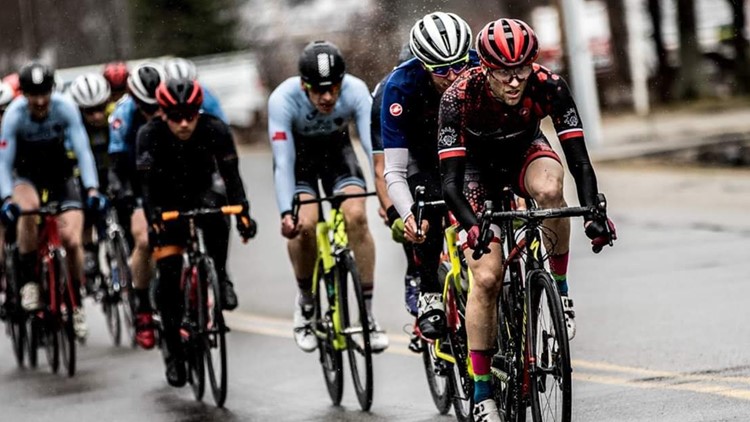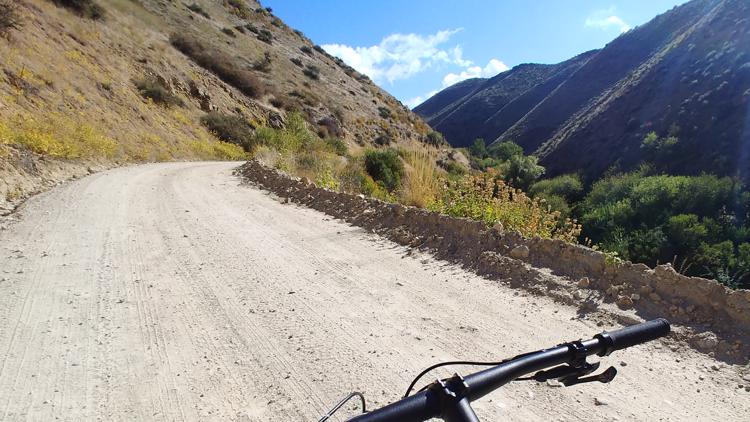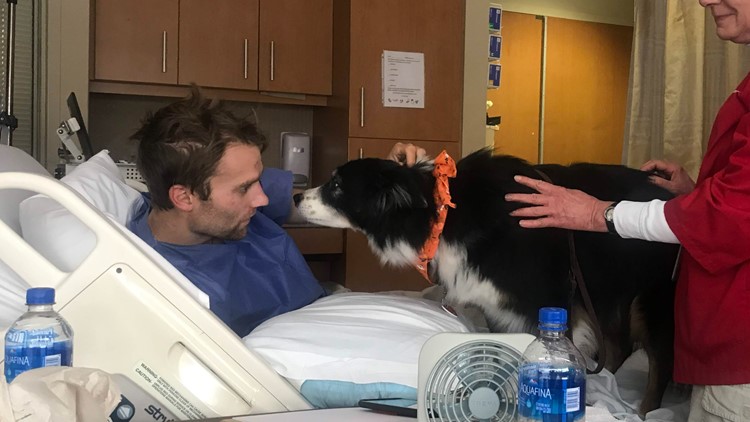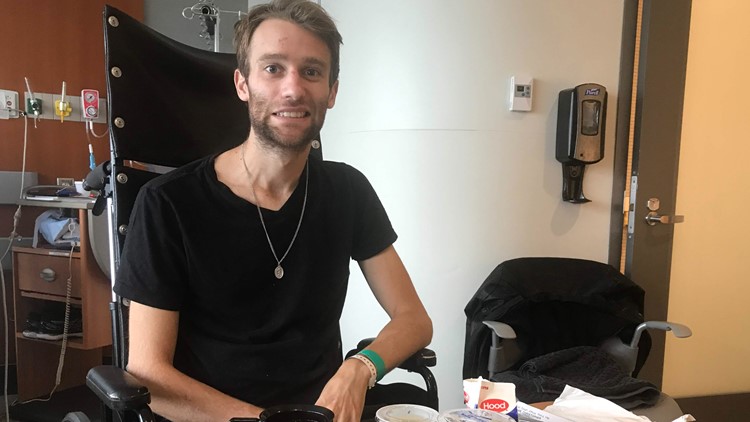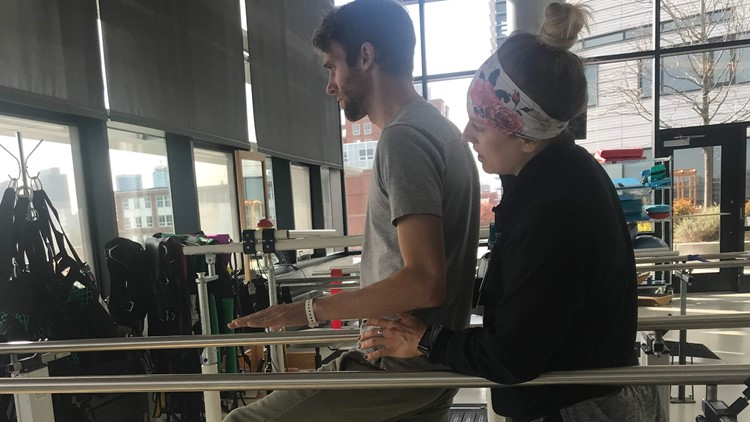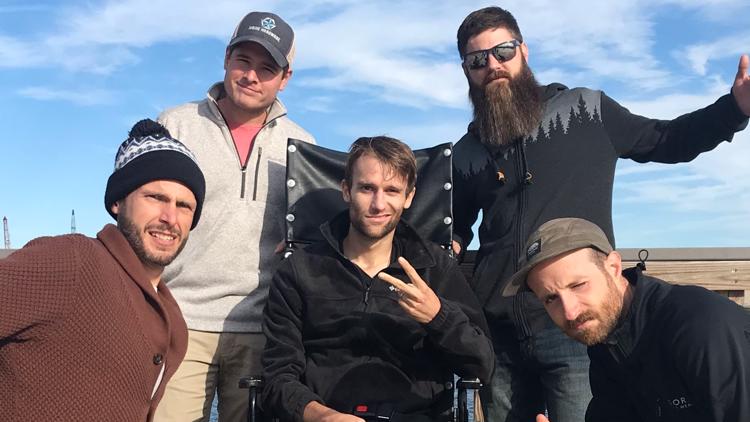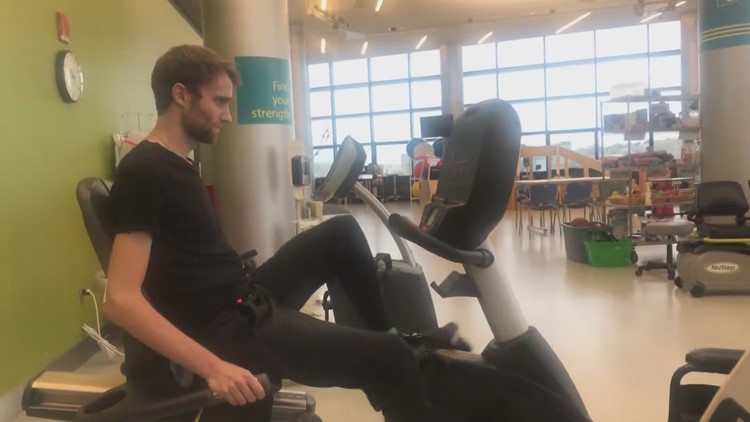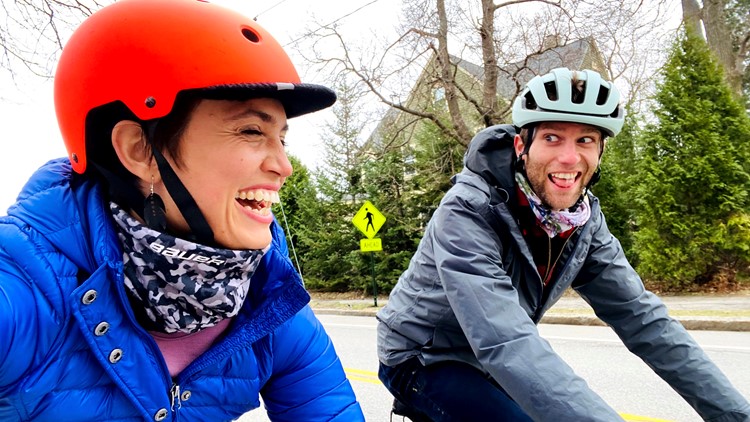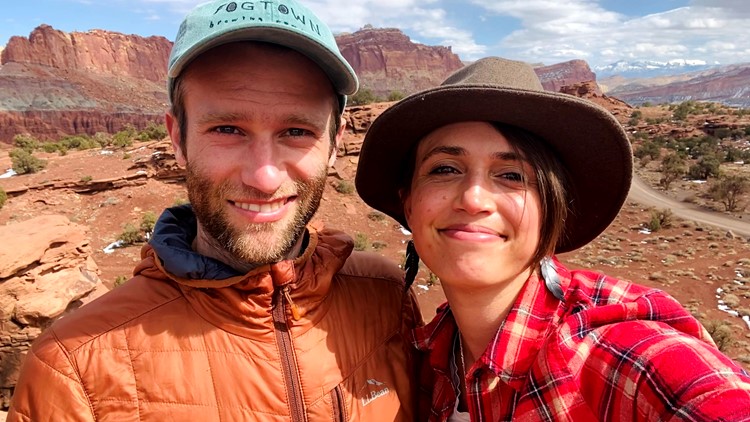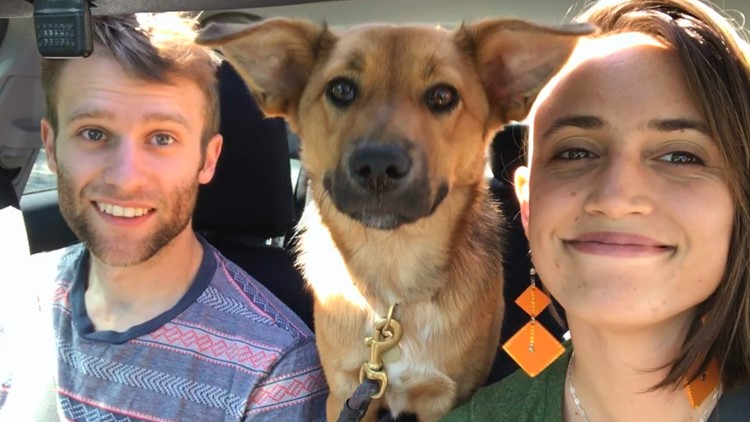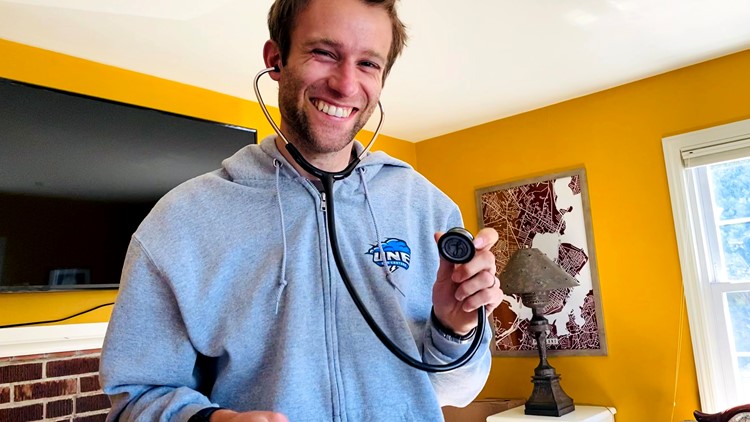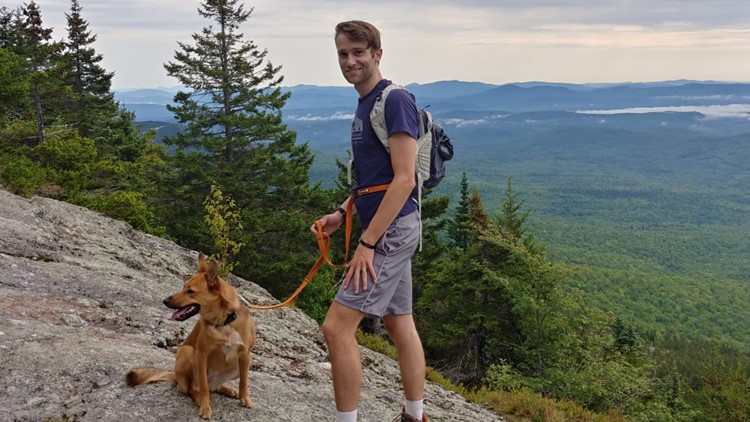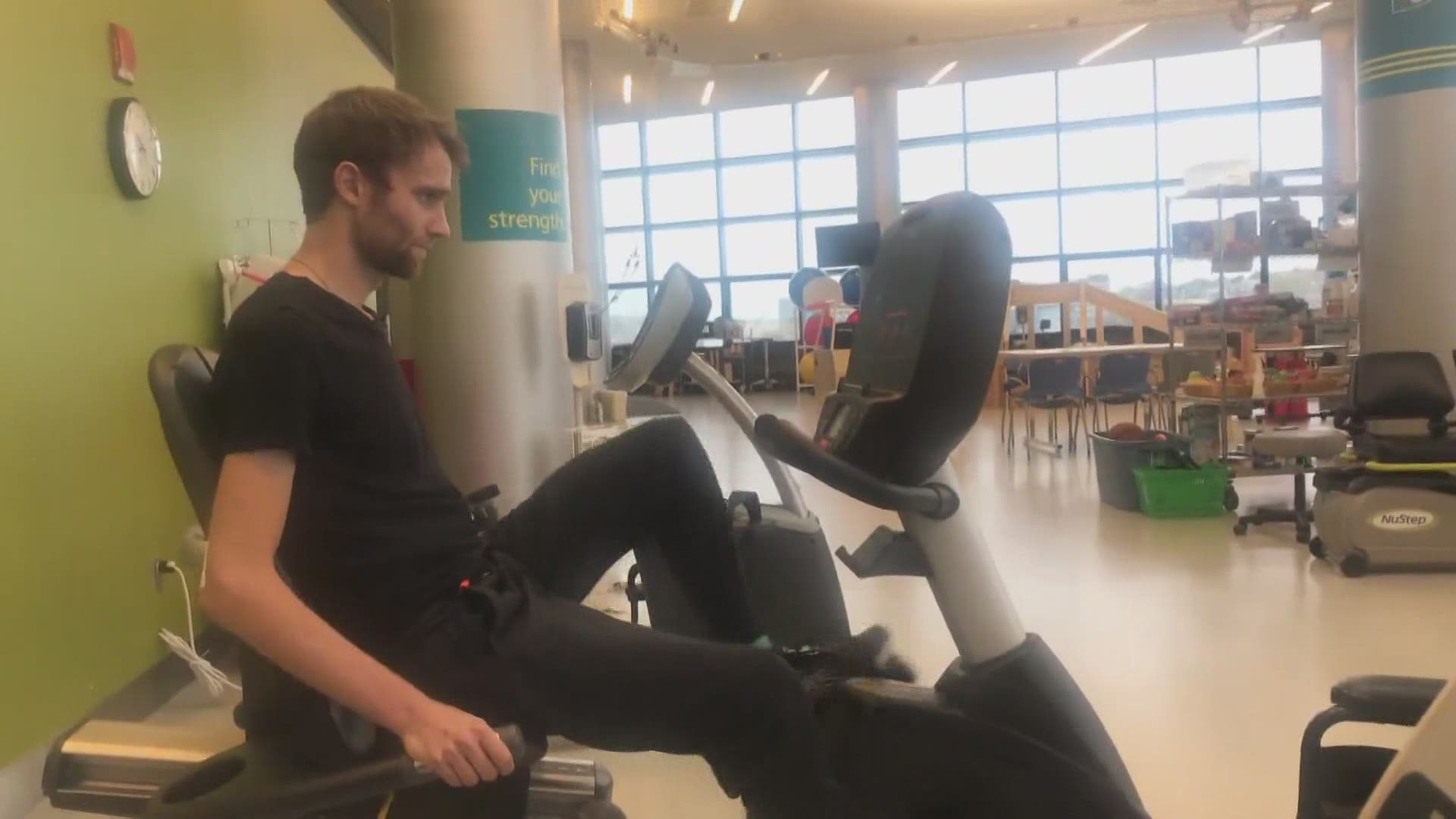PORTLAND, Maine — UPDATE: On October 11, 2021, Chris Barr, of Portland, who continues to recover from a traumatic brain injury, ran the Boston Marathon. Barr ran the 26 miles for the Spaulding Rehabilitation Hospital in Boston where he recovered after a mountain bike accident left half his body paralyzed. Barr attributes the hospital and staff with helping him get his life back.
Sometimes life takes us down paths we never anticipated traveling—ones we never wanted to go down in the first place. That’s true for a 29-year-old Chris Barr of Portland whose life changed in an instant on September 27, 2019.
A work conference at the engineering firm where Chris had worked for less than a year sent him to Boise, Idaho. Another new employee came along and together the men decided to extend their stay and explore some of the world-class mountain bike trails of Boise.
Chris had nothing to worry about. He was an experienced athlete, who raced for the University of New Hampshire during his college days but had continued to stay in tip-top shape. He road every night and competed almost every weekend. Riding bikes was a fabric of his life and although he preferred to road cycle, he was just as comfortable on mountain terrain and fatter tires.
The two coworkers, who didn't know each other particularly well, grabbed a bite to eat and picked up their rental bikes to hit the trail.
That is the last memory Chris Barr has of the day that changed his life.
Two-and-a-half weeks later he woke up from a coma. At his side at St. Alphonsus Regional Medical Center in Boise were his wife, Alex Morrow, his mother and father, and his brother.
PART 1
PART 2
"I didn't know where I was. I didn't know dates or times. It's so foggy," Chris explained as he searched shady memories.
The waking up didn't come all at once but slowly. At first, his eyes were open but it didn't seem as though Chris was there. He couldn't speak, and the trauma to the left side of his brain left the right side of his body paralyzed.
"A lot of people think the hardest part was when he wasn't opening his eyes ... but the harder moments were when he did start opening his eyes and it was so foggy and he wasn't there and it was that fear and that feeling of like, 'Is this our new reality? Is he ever going to come back fully to us?'" Chris's wife, Alex, remembered.
Chris Barr's recovery
Chris was suffering from diffuse axonal injury, a form of traumatic brain injury that happens when the brain rapidly shifts inside the skull and the long connecting fibers in the brain called axons are torn. According to his doctors, only 10% of people with this brain injury regain consciousness.
After nearly a month in Boise, Chris was transferred to Spaulding Rehabilitation Hospital in Boston where he started to learn that it doesn't really matter the road life leads us down, it's how we navigate our way that makes the difference.
He started working with physical, occupational, and speech therapists to regain his strength and, he hopes, walk again and turn his whispers into a full voice.
After almost a month at Spaulding, Chris's hard work was paying off—he was walking, even running, and his voice was stronger as words came more clearly to him. He was ready to return home.
Months after his accident, Chris invited over the coworker that he was mountain biking with to fill in the holes in his memory. His coworker said Chris was on the trail just ahead of him. The two had just descended the steepest part of the trail, his coworker rounded a corner and found Chris lying face down on the earth unconscious, his face covered in blood. It looked like he had gone over his handlebars and his bike was off to the side, his helmet severely damaged on the left side.
The coworker got out his phone to dial 911 but had no reception so he dug into Chris's pocket, found his phone, and used it to call for help. It took rescue crews on ATVs an hour to reach the bikers. They carried Chris to a waiting helicopter.
"He basically saved my life," Chris said.
Seven months after his accident, Chris got back on a bike, something doctors had said he would never do again. He rides a little slower these days but that isn't necessarily a bad thing, according to his wife, Alex. She can now keep up with him and they enjoy riding together every week like they once did when they were dating 11 years ago. Chris's voice has changed, words are still sometimes jumbled and he fights to find the right ones, but he is doing well.
A neurologist told Chris, "Once you've seen one brain injury, you've seen one brain injury."
There is no textbook recovery for the trauma that a brain goes through and even though Chris is not the same person he once was, Alex said he is still the man she married.
"Chris is still himself if not on steroids," Alex explained. "Lucky for me and everyone who loves Chris, Chris is Chris but even more so Chris. I always tell everyone that Chris is the most kind and caring and loving person I know and then he just is a genuine soul that loves and cares about people."
Alex said that hasn't changed; it's been magnified.
For Chris and Alex, this experience has shown them so much: a caring community of family and friends, the hard things others have been through but rarely share, and, it has helped Chris find himself.
Feeling so indebted to the health care professionals that helped him recover, Chris is taking a sharp career path. He's enrolled at the University of New England and hopes to become a nurse.
"Your life may be different but ... something that I've come to terms with was this is the new me."

